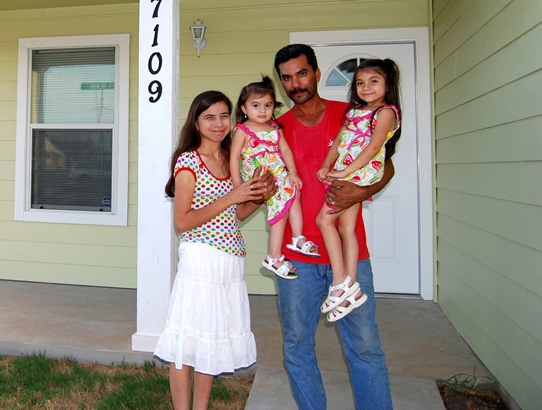The Fair Housing Act After 40 Years Continuing the Mission
Making the Fair Housing Act Work for Everyone
By Agatha So, Policy Analyst, Economic Policy Project, NCLR

A good home is the foundation for a better education for our children, enhanced employment opportunities, and a safe and stable place for families. We recently celebrated National Homeownership Month, and we are reminded of the ongoing role of the Fair Housing Act (FHA) in ensuring that American families have equal opportunity to find a place to call home.
Our President and CEO Janet Murguía shared remarks at this year's National Fair Housing Alliance (NFHA) Conference, reaffirming the relevance of fair housing to NCLR's mission of making the American Dream of homeownership accessible for Latino families. Since 1988, NCLR has been working with NFHA to ensure that the promise of the FHA continues to be a reality for all Americans.
The FHA has been a critical tool for the civil rights community to ensure that communities of color, in particular, are protected from race-neutral, and other forms of housing discrimination that would affect them disproportionately, as in the case of Texas v. Inclusive Communities Project.

Yet, 50 years after the enactment of the FHA, housing discrimination based on race or national origin persists. In a 2013 report, Puertas Cerradas: Housing Barriers for Hispanics, NCLR worked with the Equal Rights Center to document housing discrimination based on national origin. More than 40 percent of all Latino testers experienced differential treatment, such as receiving quotes for higher fees, more extensive application requirements from an agent on rental tests than White testers, and offered fewer options than White testers in terms of homes for sale.
This discrimination is often hard to identify, and many times goes unrecognized and unreported. The U.S. Department of Housing and Urban Development (HUD) estimates that more than two million instances of housing discrimination occur each year, but fewer than 1 percent are reported. In 2013, HUD received a paltry 9,324 complaints of housing discrimination based on race, color or national origin combined.
 Written law alone does not guarantee fairness and equity—we must do more to bring housing discrimination to light. NCLR's Affiliates, and in particular the 50 organizations that compose the National Homeownership Network, are a good place to start. There are several ways we can work together to challenge the discrimination Latinos face in housing:
Written law alone does not guarantee fairness and equity—we must do more to bring housing discrimination to light. NCLR's Affiliates, and in particular the 50 organizations that compose the National Homeownership Network, are a good place to start. There are several ways we can work together to challenge the discrimination Latinos face in housing:
- Increase funding for public awareness and outreach campaigns. By targeting Latino communities with bilingual, culturally competent information, more Latinos, especially Hispanic immigrants, would know their rights and recognize when they are being discriminated against.
- Increase funding to trusted community organizations that best know this community. Hispanic-serving community-based organizations, as trusted advisors, would ensure that the FHA is fully responding to the claims of the Latino community. Only 13% of current HUD Fair Housing Initiatives Grants go to groups serving the Hispanic community.
- Build stronger collaboration between fair housing and immigration advocates. By joining forces, housing and immigration groups can combat the hostile rhetoric against Latinos and communities of color, identify housing discrimination, and prevent obstacles to equal housing.
Millions of Latino families today are knocking at the door to the American Dream of homeownership. A majority of Latinos strongly believe that homeownership is a way to build wealth for their families. It is important that we continue to use tools such as the Fair Housing Act to ensure that more Latino families are able to achieve this dream.

By Nancy Wilberg Ricks, Senior Policy Strategist, NCLR This year all eyes are on anti-discrimination laws that impact your housing rights, as the U.S. Department of Housing and Urban Development […]

Homeownership is a cornerstone of the American Dream and often a doorway to greater opportunity. The family that is able to buy or rent in a neighborhood with a thriving […]
(This was originally posted to the Home for Good blog.) Last week, the Senate Banking Committee announced a new bipartisan agreement to overhaul our nation's housing finance system by restructuring […]
Source: https://www.unidosus.org/blog/2016/07/07/making-fair-housing-act-work-everyone/
0 Response to "The Fair Housing Act After 40 Years Continuing the Mission"
Publicar un comentario